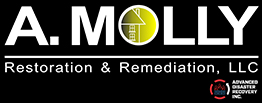This post will be about what to do when your home has flooded (or has experienced water damage). Much of this article is going to be common sense for a lot of you however I feel like I should still share these tips as it can potentially save you thousands of dollars in property and content damage.
So what do I mean by flooding? Well the word flooding is loosely interchanged with water damage, and really what it refers to is any kind of water that has leaked, spilled, or intruded into your home and thus causing damage. Anything from a leaking roof, toilet overflow, broken water pipe, or a drainage problem causing your basement to flood are examples of water damage.
So, if you happen to find yourself in this situation here are my 6 tips for dealing with a flood or water damage in your home.
My 6 Tips For Dealing With Your Flooded House Are:
Attempt to stop the water
In situations where the water is leaking or coming in from an obvious/accessible area then try and stop the leak ASAP, this includes overflowing toilets and appliance leaks etc. Obviously there will be those situation that are out of your technical skill such as repairing a leaky pipe or even drain back-ups. The point I am making here is do what you can to stop the water from coming into your home and causing further damage.
Turn off power to affected areas
If your dining room ceiling is leaking from the heavy rain storm going on outside and water is dripping down your chandelier, then turn the power off to that part of your home. This will limit the chances for electrical issues to occur, on that same note avoid using any electrical items such as vacuums as electric shock is a possibility when standing on wet areas.
Clean up what you can
In this step what seems to be the go to move is grabbing all the towels in your house and soaking up all the water you can, use a mop, a dustpan, anything you think will help to remove all the water that you can. A quick word of caution in this step, be aware that depending on where the water came from (categories of water) it could be contaminated, sewage water for example can cause illness to a person if ingested or exposed to open cuts and sores. See my article on safety gear you should be wearing in cases such as this. Also, if you find yourself in a situation where there is more water than you can handle such as a foot of water in your basement then perhaps there is no point in trying this step and just call the professionals to help you.
Move your stuff
At this point you will want to move everything you can out of the wet areas, this includes clothing, electronics, furniture, and area rugs etc. Moving your stuff out of the way will of course limit the chances of it getting water damaged, but it will also prevent secondary damage such as wood and rust stains on your carpet. Moving your belongings will also streamline the restoration process for the professionals once they arrive as they will not be wasting time moving all the stuff for you and can focus on the more pressing issues.
Call the professionals
Now you have done everything you can possibly do to limit further damages in your home, at this point you will want to call in your local restoration company to take over. Professional restoration companies will have the manpower, expertise, and equipment necessary to properly restore your home to its pre-loss condition. Including specialized equipment such moisture detecting equipment, air movers, dehumidifiers, and HEPA air scrubbers, etc. They will also apply antimicrobial solution throughout your property in order to neutralize any contaminants as well as prevent microbial growth.
Call your insurance company
The last step once the situation is under control and damages have been mitigated is for you to call your insurance company to inform them of the water damage loss in your home. The reason I keep this step for last is because if you call them earlier on you could be wasting valuable time on-hold, or dealing with an agent giving them your policy number etc. instead of helping prevent further damage to your home and contents.
There you have it!
Those are my 6 tips for dealing with water damage in your home, at the end of the day remember that your health and property value are going to be at the top of your priority list. You want to make sure that your property is restored to its pre-loss condition, clean and safe of any contaminants, as well as restored with quality workman ship as it will directly affect your property’s value.




























